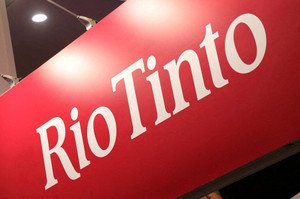Rio Tinto to form new lithium unit after Arcadium buy, memo says
Published by Global Banking & Finance Review®
Posted on January 17, 2025
3 min readLast updated: January 27, 2026

Published by Global Banking & Finance Review®
Posted on January 17, 2025
3 min readLast updated: January 27, 2026

Rio Tinto plans a new lithium division after acquiring Arcadium for $6.7 billion, focusing on the Rincon project in Argentina.
By Clara Denina and Ernest Scheyder
LONDON/HOUSTON (Reuters) - Anglo-Australian mining giant Rio Tinto plans to create a standalone lithium division after it closes its $6.7 billion acquisition of Arcadium Lithium, according to an internal memo seen by Reuters.
The plan reflects how closely tied Rio CEO Jakob Stausholm and his leadership team believe lithium is to the company's future and the high value they place on Arcadium's engineers as part of the deal.
Arcadium's shareholders approved the sale last month and closing is expected by July.
The new business, Rio Tinto Lithium, will assume control of Rio's $2.5 billion Rincon project in Argentina but not its controversial Jadar lithium project in Serbia.
This is to "ensure we give laser focus to successful integration once the transaction completes," Rio's Stausholm told employees in the memo.
The deal is Rio's largest in more than a decade.
Given that unfamiliarity with integrating an entire company, Rio executives plan to absorb Arcadium slowly out of concern that forcefully integrating the lithium producer could prompt an exit of talent that could abrogate the deal's value, according to two sources with knowledge of the matter.
Paul Graves, the Arcadium CEO and former Goldman Sachs banker, is expected to lead the lithium operations from New York.
DEAL LOGIC
The deal will make Rio the world's third-largest producer of lithium, a metal used to build batteries for electric vehicles and many electronics, just as demand is expected to increase later this decade after a recent supply glut.
Already the world's largest producer of iron ore and a major copper producer, Rio is transforming itself into a processor of high-end, low-carbon minerals needed to power the energy transition.
Rio's existing Minerals division has struggled in the past few years to gain approval for its planned lithium project in Serbia due to opposition from locals and environmental groups. Meanwhile, it has expanded production plans for the battery metal at its Rincon project and is on the shortlist to partner with Chilean state miner Codelco on a new lithium project.
At Rincon, Rio produced its first metric ton of lithium in December using direct lithium extraction (DLE), an innovative process meant to quicken production that numerous rivals are attempting to implement at commercial scale. Still, that milestone took three years.
The Minerals division also produces diamonds, boron and titanium dioxide, a white pigment used in foods and consumer goods.
Arcadium has around 2,400 employees across nine countries. Roughly 84% of its revenue comes from Asia - the global centre for lithium demand - giving it growth potential as EV projects ramp up across the Western hemisphere, especially those supported by the U.S. Inflation Reduction Act.
(Reporting by Ernest Scheyder and Clara Denina; Editing by Emelia Sithole-Matarise)
The article discusses Rio Tinto's formation of a new lithium division following its acquisition of Arcadium.
Paul Graves, the CEO of Arcadium and former Goldman Sachs banker, will lead the operations.
The Rincon project in Argentina is a key focus for Rio Tinto's new lithium division, enhancing its production capabilities.
Explore more articles in the Finance category
